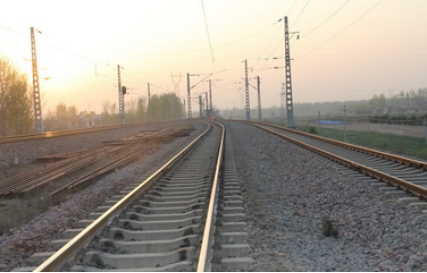
Transportation in the Unites States is changing. 2017 brought us recordsetting aviation travel, advancements in groundbreaking vehicle technologies and huge increases in freight traffic thanks to booming online commerce. However, 2017 also solidified transportation as a leader in U.S. greenhouse gas emissions, saw the continued deterioration of infrastructure and continued the decline of subway and bus ridership.
The New Year will bring more change with it. Here are three predictions for the ongoing transportation revolution in 2018:
Electric vehicles will get media attention, but Americans will continue to buy gas-guzzling SUVs. 2018 will be a landmark year for electric vehicles. Automakers andanalysts alike are predicting strong sales growth, which boosters say will help tackle climate change. Analysts predict that electric vehicle sales in the United States will be around 250,000 to 300,000 in 2018 – a new record, and an impressive increase from just a few years ago.
But Americans are buying SUVs and light-duty trucks at a much higher rate. Automakers are expected to sell 16.7 millionvehicles in the U.S., and more than 10.8 million of those vehicles will be light duty trucks and SUVs.
Despite the attractive pricing, incredible performance and potential environmental benefits of electric vehicles, gasoline is cheap. Governments and the private sector have yet to invest in widespread charging stations. Convincing consumers to ditch the internal combustion engine and government to invest their limited dollars in electric vehicles will take time, as the technology must prove its functionality and environmental worth first.
Automated vehicle developers will push back their timelines for deployment, for good reason. Automated vehicles are coming, but the real question is when. Just over a year ago, tech magnate Elon Musk said he felt pretty good about a Tesla driving completely autonomously from Los Angeles to New York without any human interaction by the end of 2017. But at a recent conference, he pushed that date back another two years. Chevy delayed the debut of Super Cruise, and driverless shuttles have yet to move beyond pilot phases.
Society will greatly benefit from automated vehicle safety improvements. However, it's a good thing that automated technologies are delayed. Automakers are finding it more difficult to design the system than they originally expected. Instead of putting a product on the road that is unsafe, they are responsibly taking the time they need to make sure the system is ready for the public. Patience will pay off in the long run.
Public transit ridership will continue to decline, and force agencies to innovate. After nearly two decades of general growth, ridership on the nation's bus and rail systemspeaked in 2014, and has since fallen. Transit use will continue its decline in 2017 and into 2018. The primary underlying cause for transit ridership loss is economic. Unemployment is at 4.1 percent, and wages for the lowest earners have increased. Car sales are at record highs, and options like Uber provide convenient transportation options for those who can afford it. Poor maintenance has caused system delays in regions like New York andWashington, giving people reason to leave transit and create new routines.
Public transit is and will continue to be a vital part of how Americans get around, especially in its largest cities. Transit ridership is still a third higher than it was in the mid 1990s. But the decline in ridership must force agencies to rethink their services and innovate. Some regions are redesigning their bus networks to better meet the demands of today. Others are piloting flexible microtransit services. And others are putting a greater emphasis on maintenance, and rethinking how they approach it.
New and exciting innovations continue to redefine transportation. This will force public and private sector entities to rethink what is possible. 2018 won't be the year of the Hyperloop or some other ultramodern invention. Innovation will have to come through continued research and strategic public investments, setting the stage for a transportation system that is safer, faster, cleaner and more convenient.
https://www.usnews.com/opinion/economic-intelligence/articles/2017-12-15/3-transportation-predictions-for-2018